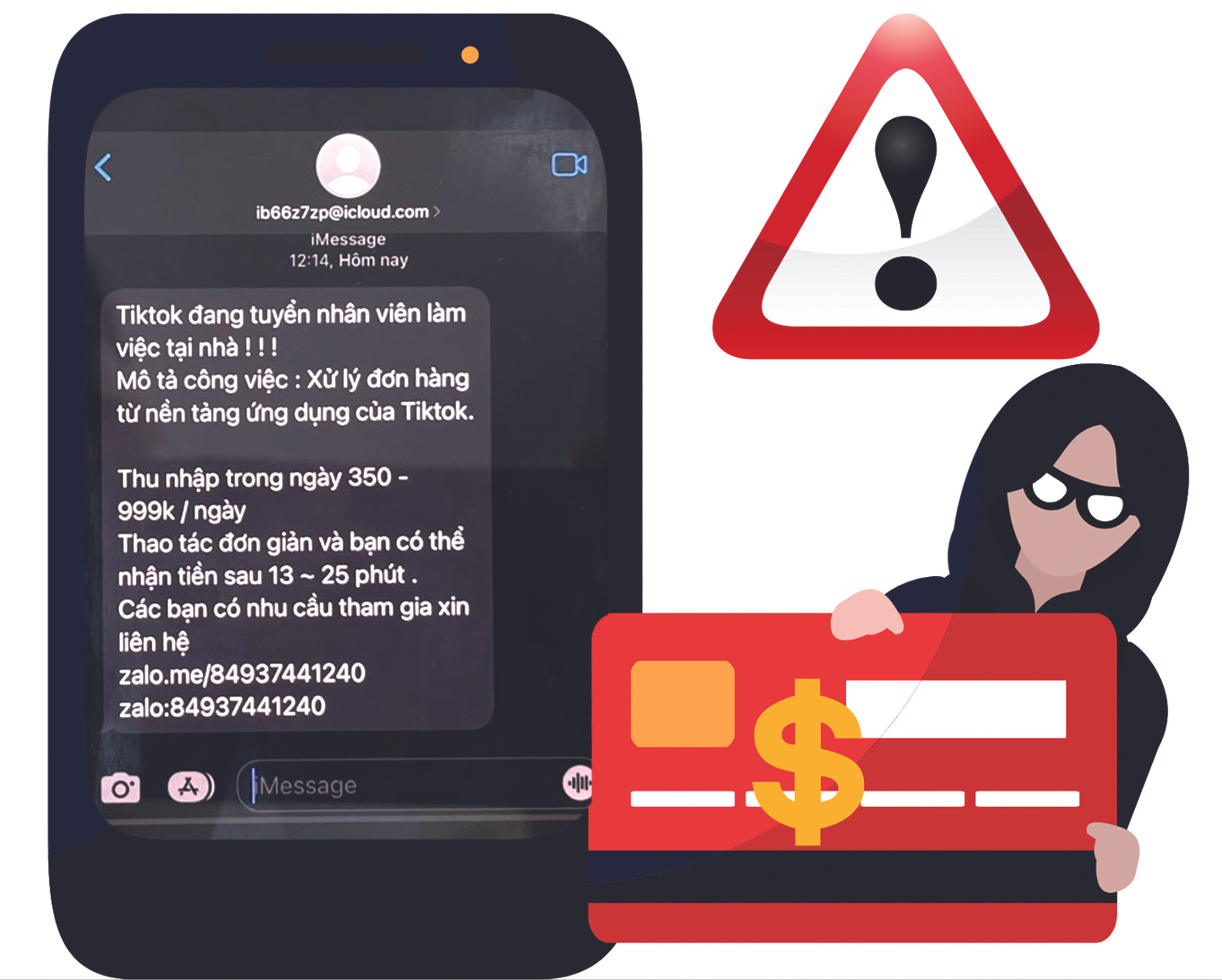
Chu Nhung, a retired officer in Hanoi, said a man claiming to be a policeman investigating a business case called her and asked her to confirm her identity. He asked for her full name, residential address, ID number and licensing date. The conversation only stopped when the man asked for her bank account number, which she found suspicious and immediately hang up.
Mai Huong, a teacher in Nam Dinh, was invited by a group of people online to work as a collaborator for e-commerce platforms to earn extra income. She was told to handle orders for the platforms. After performing duties on the fake platforms created by the scammers, Huong lost VND400 million.
Nhung and Huong are just two of numerous victims of online scams. Many scenarios have been designed by scammers to deceive users. They impersonate users’ relatives, asking to transfer money; impersonate agencies, informing people of violations of traffic regulations and asking them to pay fines; and send SMS brand name messages, faking banking and financial institutions.
According to BKAV Corporation, three out of every four Vietnamese have received financial scam calls.
In 2022, many people became the victims of scam tricks, exposing personal information and losing assets.
These included a loss of VND2.1 billion because of a fraud on sim card upgrading in HCM City, and a loss of VND5.5 billion in Hanoi, where the victim followed instructions by a person impersonating a Hanoi policeman.
According to the Ministry of Information and Communications (MIC), every Vietnamese spends seven hours a day online. While the time spent on internet access is increasing rapidly, knowledge and skills about information security have not been upgraded.
Security experts said that while Vietnam is speeding up digital transformation, and people and enterprises are shifting their operations in the digital environment, only one serious cybersecurity incident would be enough to lead to the stagnation of the digital transformation program.
They also warned that online scams, if not repelled, would affect creation and maintenance of people’s ‘digital confidence’, making them hesitate to work in cyberspace.
The Authority of Information Security has joined the Ministry of Public Security, Ministry of National Defence and relevant agencies to block 5,078 fraudulent and illegal websites.
Trong Dat